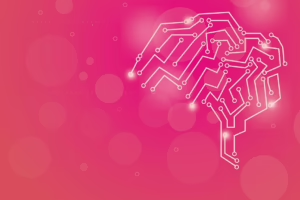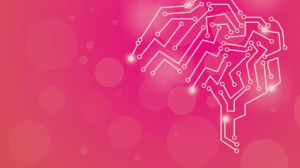The Future is Now: Exploring the Role of AI in Everyday Life
As we navigate the early 21st century, the rapid advancement of artificial intelligence (AI) is transforming how we live, work, and interact with the world around us. Once confined to the realm of science fiction, AI has surged into the mainstream, weaving itself into the fabric of our daily routines. Today, we find ourselves in a unique moment where the future we once imagined is happening all around us. From personal assistants and smart home devices to advanced healthcare solutions and ethical dilemmas, AI’s influence is omnipresent, and its potential seems limitless.
Personal Assistants and Enhanced Communication
One of the most recognizable manifestations of AI in everyday life is the rise of personal assistants like Siri, Google Assistant, and Alexa. These AI-driven tools perform tasks ranging from setting reminders and answering questions to controlling smart home devices. With voice recognition technology continually improving, interacting with these assistants has become seamless and intuitive. This convenience allows users to manage their busy lives more efficiently, elevating productivity and encouraging more organized routines.
Moreover, AI-driven chatbots and virtual customer service representatives have revolutionized communications. Businesses leverage these tools to enhance customer interaction, providing immediate assistance and guidance to consumers without the long wait times associated with traditional customer service channels. This integration of AI not only streamlines business operations but also elevates customer experience by making support accessible around the clock.
Smart Homes and the Internet of Things (IoT)
As smart technology finds its way into our homes, AI serves as the backbone of this transformation. The Internet of Things (IoT) comprises interconnected devices that communicate with each other and with users, optimizing various household functions. From smart refrigerators that can create grocery lists to security systems using AI algorithms to identify potential threats, these advancements create a more convenient and safer home environment.
Smart thermostats, for example, utilize AI to learn a household’s temperature preferences and automatically adjust settings for optimal energy efficiency. As AI helps reduce energy consumption, not only do homeowners benefit financially, but the environment does too. Thus, the intersection of AI and IoT is not just about luxury; it’s about creating sustainable living conditions.
Healthcare Innovations
AI’s potential in healthcare has garnered significant attention in recent years, particularly in areas such as diagnostics, treatment personalization, and data management. Machine learning algorithms can analyze vast amounts of medical data much faster than human experts, facilitating earlier and more accurate disease detection. For instance, AI systems are now capable of identifying anomalies in medical images, such as X-rays or MRIs, often with remarkable precision.
Moreover, AI is paving the way for personalized medicine. By analyzing a patient’s genetic makeup alongside their health history, AI can assist doctors in developing tailored treatment plans that are more effective and have fewer side effects. This ability to customize healthcare not only enhances patient outcomes but also plays a pivotal role in advancing research and treatment protocols.
Ethical Considerations and Challenges
While the benefits of AI are abundant, its integration into everyday life does not come without challenges. Ethical considerations surrounding privacy, data security, and bias remain at the forefront of discussions. As AI systems increasingly rely on vast data sets to function effectively, ensuring that this information is collected, stored, and utilized responsibly becomes essential. The risk of inherent biases within AI algorithms, which can lead to unfair treatment in various sectors such as hiring and law enforcement, also raises significant concerns.
To address these challenges, stakeholders—including governments, businesses, and technologists—must collaborate to establish standards and regulations guiding the ethical use of AI. Transparency, accountability, and continuous oversight will be necessary to cultivate public trust and ensure that the transformative power of AI benefits all.
Conclusion
We are living in a time when the future is unfolding before our eyes, significantly shaped by AI’s presence in our everyday lives. From enhancing our personal and professional routines to innovating healthcare and home technology, the potential is vast. However, as we embrace this digital transformation, a balanced approach is crucial. Striking a harmony between harnessing AI for progress and safeguarding ethical standards will dictate the future impact of this technology.
As we look ahead, it is clear that the role of AI will only continue to grow. It is now up to us to navigate this exciting frontier thoughtfully, ensuring that the future is not just bright but also equitable. The future is indeed now, and it’s an exhilarating landscape filled with possibilities waiting to be explored.
For further reading on the profound impacts of AI in our lives, visit [modern_footnote_source_link].


























Add Comment